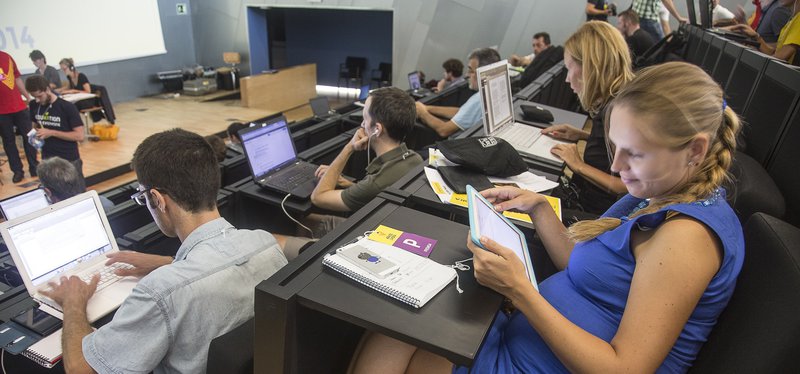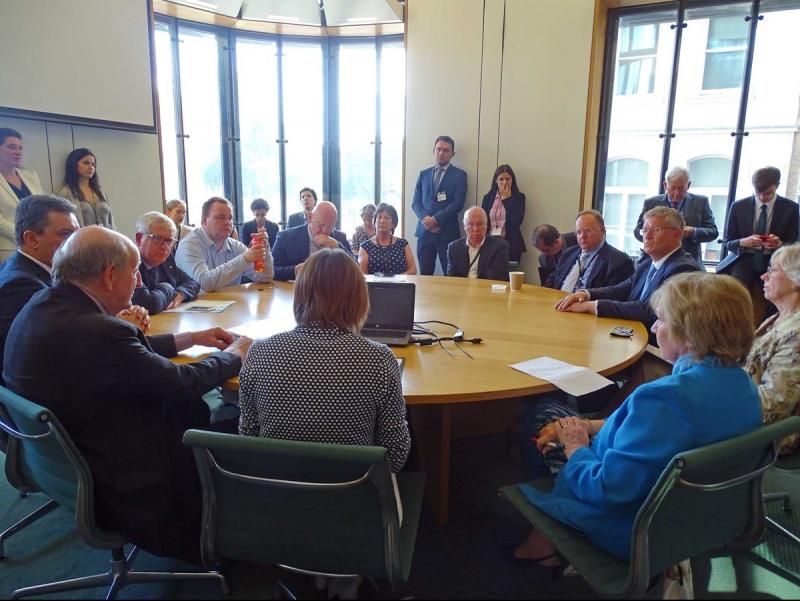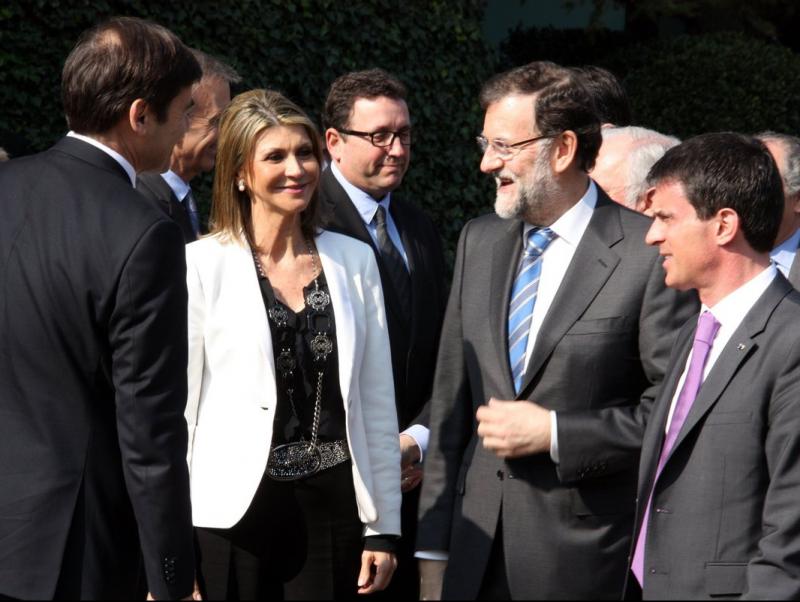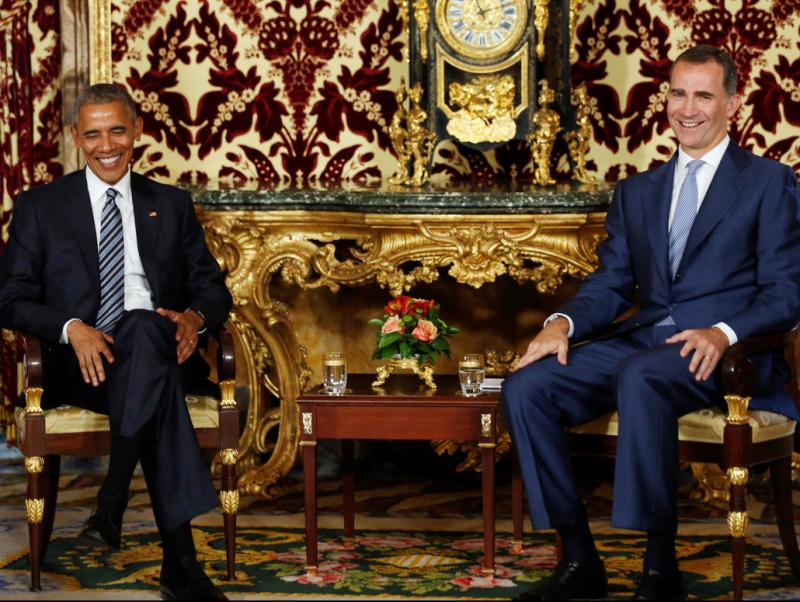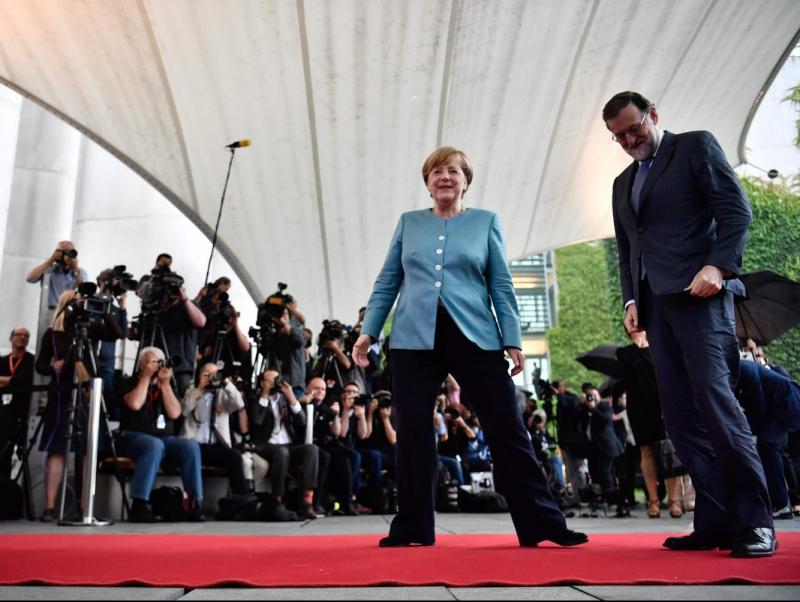The eyes of the world upon us
The international press has overcome its surprise at the mass September 11 protests and now shows a deeper interest in the Catalan process
In the prologue of the reissued version of the book Cata...què? (2016), about how Catalonia is seen by the international media, journalist and now Catalan pesident, Carles Puigdemont, states that since he wrote the book in 1993 “unimaginable” changes have taken place. “Catalonia has become a very relevant player in the international media, in a sustained and intense way.” Puigdemont’s book first came out around the time of the Olympic Games in 1992. It was an event of huge international projection, albeit more focused on the attractions of the Catalan capital than the country’s political situation. Puigdemont’s book takes us up to this period, and his conclusion is that from 1918 to 1993, Catalonia was a constant subject of interest in the international press, but only timidly and depending on world events.
The panorama has changed a great deal in the past few years, in particular due to the informal sovereignty votes that began in Arenys de Munt on September 13, 2009. Someone who keeps a close eye on the international press is journalist Germà Capdevila, who identifies this date as a turning point, something another close follower of the world’s media agrees with, Vilaweb editor, Vicent Partal. Yet, there is also another date, when things really began to take off: 2012, and the Catalan parliamentary elections. A year later, The Economist magazine put an image of a lone-star independence flag in a collage for its World in 2013 supplement.
Today, Catalonia is not only a subject of media interest abroad because of its capital and tourism, but the country’s politics is now a constant focus of attention due to the sovereignty process. This change is reflected in many areas, from declarations about Catalonia by political leaders to European parliamentary gestures, such as the resolution passed by the Danish chamber a couple of years ago calling for “peaceful” and “democratic” dialogue between Catalonia and Spain, or the recent creation of the All-Party-Parliamentary Group on Catalonia in the UK parliament.
Since the 2009 vote in Arenys de Munt until today, it is the Catalan sovereignty process that has consistently caught the attention of the international media. There have been innumerable, increasingly well-informed, articles about the political process towards independence, Spain’s unwillingness to talk and the right to self-determination. Capdevila points out that at first the international press was patronising towards the subject of Catalan sovereignty, and he remembers accompanying some BBC reporters, who looked on the issue “as if it were about the Guinness record for the longest pizza in the world.” Yet, as the informal votes and the protests increased, the international press began to take the subject more seriously, until another turning point with the non-binding referendum of November 9, 2014. Some 850 reporters from 240 different media outlets attended that event, half of them foreign. In fact, it is a figure that takes on significance if we compare it to the referendum in Scotland, which attracted a lower number of journalists, some 550.
Capdevila, who reviews the foreign press for a programme on El Punt Avui TV, points out that at first, most of the articles and reports on the Catalan situation dedicated more lines to context, because “the readers did not know what Catalonia was or what the demands of Catalans were.” With time, that has changed and today’s articles about Catalonia in the international media take for granted that the readers are aware of the scenario and know who the main political players are, as can be seen from the recent foreign reports on the plebiscite election of September 27, or the 9N court rulings. There has also been a notable increase in articles that not only report the facts, but analyse the political situation and the possible consequences, in some cases even taking sides. The Brussels publication Público, along with Le Monde, Le Figaro and Deutsche Welleun TV, predicted that the 9N court cases would provide a boost for the independence movement.
With an increasing focus on the issue of self-determination, Capdevila points out that a lot of the criticism of independence in the international press has begun to disappear, “because it is very hard to oppose the fact that people want to vote.” A good example is the prestigious US newspaper, The New York Times, which has devoted two of its editorials to the Catalan process, the latest urging the Spanish authorities to allow the people in Catalonia to decide on independence at the ballot box. Even publications not particularly enamoured of the arguments for independence tend to agree that Catalans should have the right to vote on their political future.
Something else Capdevila remarks on is the different ways cultures approach the Catalan case. The attitude of Anglo-Saxon countries, with their long democratic tradition, for example, is in sharp contrast to that Germany and Austria, whose traditions bear the imprint of strong state nationalism. There is also great variety in how Latin American countries deal with the issue, depending on the strength of their cultural and historical links with Spain.
In the following pages, we take a look at some of these changes in the approach to Catalonia in the international media of certain key countries. One thing that is clear about how Catalonia is seen abroad is that there is great diversity of approach and opinion, depending on the history and internal politics of each place and above all due to the strength of their international links with Spain. Whatever the approach, the world is watching us.

